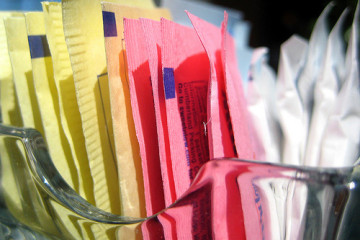

Summary by Neva Cochran, MS, RDN, LD The Texas Academy of Nutrition and Dietetics Annual Conference in Houston April 12 – 14, 2018, featured Craig Johnston, PhD (pictured)as a speaker on “Finding the Answers to Childhood Obesity.” Dr. Johnston, an Associate Professor in the Department of Health and Human Performance at...
Read More
Mol Nutr Food Res, 2019; //doi: 10.1002/mnfr.201800868 Nier A, Brandt A, Rajcic D, et al. Download Research Study PDF Objective To determine if an isocaloric exchange of complex carbohydrates with fructose or glucose affects surrogate markers of liver health and vascular endothelial function in healthy normal weight young male and...
Read More
J Clin Nutr 2019; //doi.org/10.1038/s41430-019-0407-z — Philip Prinz Eur — Download Research Study PDF — Objective: To conduct a review highlighting current literature to discuss the question of whether dietary sugars per se have an unfavorable health effect or if it is just the amount of calories that matters in...
Read More
A Statement from the Calorie Control Council June 28, 2019 – Results of an animal study published in the journal Frontiers in Microbiology and entitled Maternal Exposure to Non-Nutritive Sweeteners Impacts Progeny’s Metabolism and Microbiome cannot be extrapolated to humans. The study involved mice as test subjects, which were fed...
Read More
By Keith Ayoob, EdD As a clinician of some 30+ years, I doubt I’ve seen a nutrition issue more polarizing than that of low-and no- calorie sweeteners (LNCS). You may have read sensational headlines about these sweeteners. You should also be hearing about their benefits, but alas, good news never...
Read More
By Jill Weisenberger, MS, RDN, CDE, CHWC, FAND Allulose, also known as D-psicose, is a rare sugar originally discovered naturally in a number of foods such as figs, raisins and maple syrup. It’s about 70% as sweet as sucrose but provides less than 1% of the calories because allulose is...
Read More